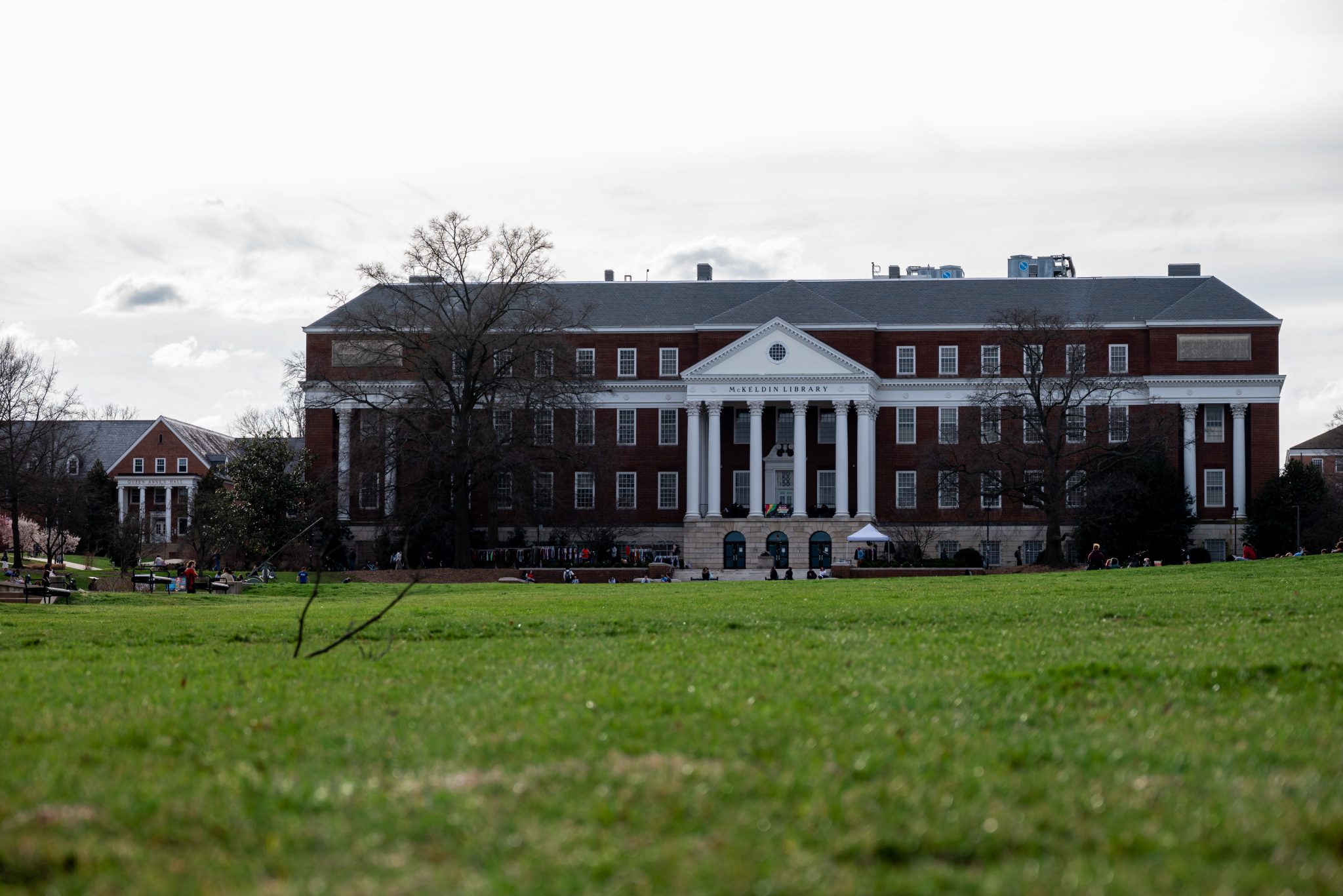By Audrey Keefe and Natalie Weger
When Bill Mitchell learned that his daughter Kristin, a recent college graduate, was murdered by her abusive ex-boyfriend, he wondered if her friends could have done something to intervene.
“Her friends simply didn’t know enough,” Mitchell said. “They loved Kristin, they wanted to be helpful, but they didn’t know enough and they didn’t have guidance.”
In the 19 years since his daughter’s death, Bill Mitchell, the author of When Dating Hurts and host of a podcast with the same name, hopes to inspire allyships by educating people on the warning signs of dating violence.
Mitchell was one of many speakers at Occupy McKeldin, an eight-hour event hosted by the University of Maryland’s Preventing Sexual Assault organization on McKeldin Mall on Friday.
The event brought dozens of students and faculty members together to foster a conversation about sexual assault on campus, according to PSA co-president Brandee Kaplan. This year’s theme — strong survivors and active allies — addressed how sexual assault violence survivors healing from trauma can build lives for themselves, she added.
“The theme this year is meant to highlight the strength of survivors, even in moments of weakness, even in moments of emotion,” Kaplan, a junior women, gender and sexuality studies major, said.
Occupy McKeldin was supported by Marathon Deli and four Greek life organizations at this university, including Alpha Delta Phi, Gamma Phi Beta, Kappa Alpha Order and Alpha Delta Pi. The event featured a thrift sale, therapy dogs, tabling from organizations and several keynote speakers.
[2 UMD events hope to highlight sexual assault on campus]
Public policy graduate student Noor Tofailli spoke about her journey to heal and love herself again after being sexually assaulted when she was six years old. Tofailli, who is from Lebanon, said discussing any form of sexual assault was stigmatized in her home country.
“It’s never gonna be okay, what happened to me. It’s never gonna be okay that this happens to other people,” Tofailli said. “But it is going to be okay if I use it in a way that helps me help others.”
Gender justice activist Sophie Sandberg, the founder of Catcalls of NYC, an initiative to chalk messages of street harassment across New York City sidewalks, also spoke at Friday’s event. Sandberg emphasized how allyship techniques, such as chalking, can bring awareness to harassment in public places and help survivors reclaim words and phrases.
Several students joined Sandberg to chalk messages on the mall’s sidewalks such as “Don’t be afraid to speak” and “Share your story.”
“Seeing chalk and people experiencing these awful situations brings awareness to other people around them, but also makes you realize how common it is,” senior public policy major Anna Gerstein said.
Many organizations tabled at the event, including Black Girls 2, The Petal Project and this university’s Campus Advocates Respond and Educate to Stop Violence office.
Senior history and women’s studies major Camille Fabiyi said Occupy McKeldin takes place in a central part of campus so it can affect as many people as possible at this university.
[UMD students advocate for clearer accessibility, accommodations regulations]
Sexual assault is present in Black community on campus, although it is something that is not always spoken about, Fabiyi added. Fabiyi, PSA’s academic and community outreach chair, said she joined to raise awareness with Black organizations on campus.
“Organizing and raising awareness of different communities is really important,” Fabiyi said. “It’s something that’s happening on campus but a lot of times people don’t talk about it.”
Regina Hrabinski, a CARE to stop Violence office outreach peer, said the event gives sexual assault survivors an apportunity to see resources on campus.
The campus community should also be more open about discussing sexual assault and create spaces to share experiences, Hrabinski, a sophomore psychology major, added.
“The survivor is inherently strong, no matter what, because they have survived something so intense and brutal,” Hrabinski said. “The fact that they survived something like that just reflects their inner strength and resilience.”



